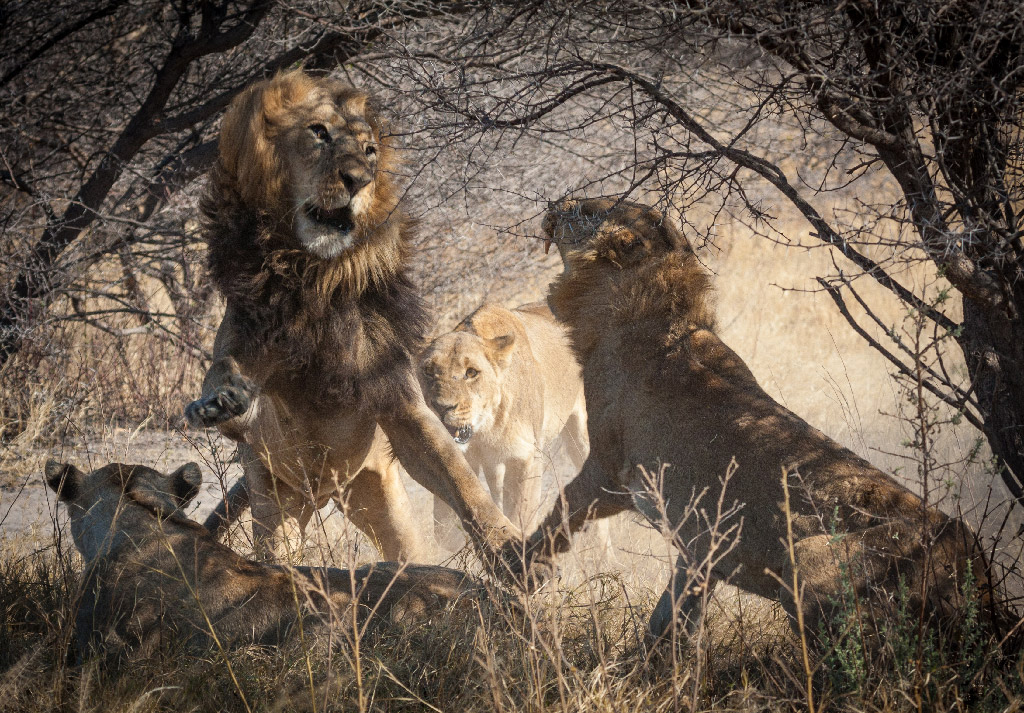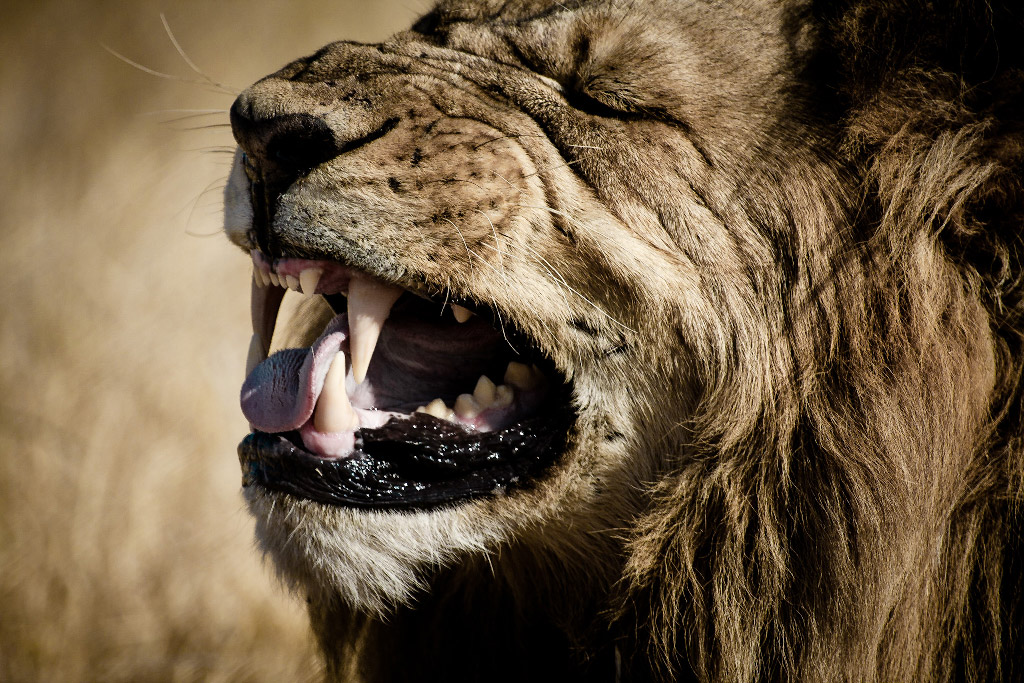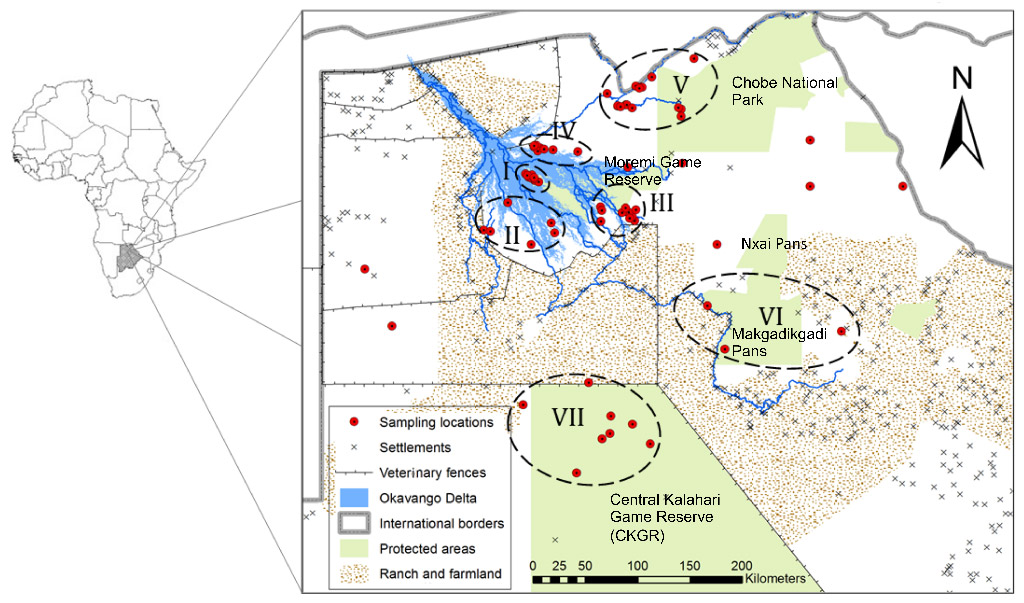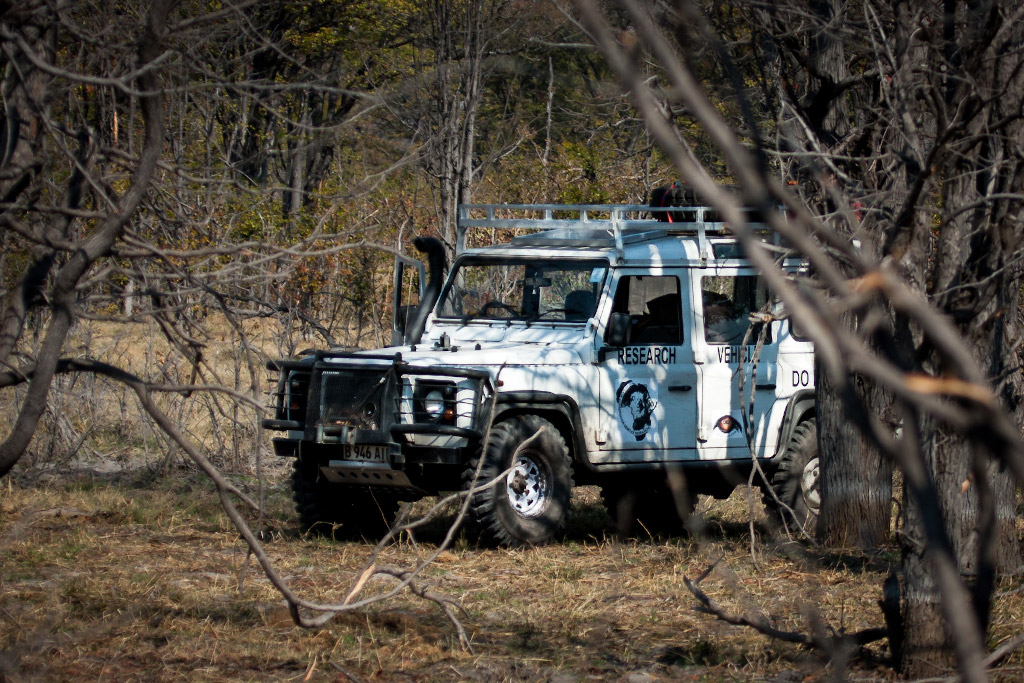
ZSL-led study shows genetic differences in African lions likely caused by ecological rather than human factors.
DECODING SCIENCE by Zoological Society of London
Conservationists should be wary of assuming that genetic diversity loss in wildlife is always caused by humans, as new research published today by international conservation charity ZSL (Zoological Society of London) reveals that, in the case of a population of southern African lions (Panthera leo), it’s likely caused by ecological rather than human factors.
Published in Animal Conservation today (28 January 2020) the study saw researchers from ZSL’s Institute of Zoology and Imperial College London analyse the genetic diversity of 149 African lions in the KAZA (Kavango–Zambezi Transfrontier Conservation Area) in northern Botswana between 2010 to 2013.
While human impacts are the leading cause of genetic diversity loss in many cases, scientists studying the lions found that diversity loss across the population was instead caused by the lions’ need to adapt to differing habitats.

They identified two genetically different populations of lions in the region, each adapted to living in a distinct habitat type; the so-called ‘wetland lions’ residing in the wetland habitat in the Okavango Delta and a ‘dryland lions’ group living in the semi-arid habitat of the Kalahari Desert.
If a separate population is created but cut off from its original source group due to ecological or human barriers, over time there will be less gene flow from lack of breeding between the populations. While a larger more connected population would generally have greater genetic diversity, small amounts of movement between them can maintain diversity while preserving adaptations that allow them to thrive in two different environments. Though not different enough to be classified as separate sub-species and still having slight genetic movement between the populations, it suggests a phenomenon called phenotypic plasticity – animals adapting in various ways to suit the environment they’re in.

Ensuring wildlife conservation managers understand how a population becomes genetically fragmented is important in order that decisions regarding protection are well-informed and consider animals’ true needs.
Dr Simon Dures, lead author and ZSL Researcher explained: “The findings have important applications for wildlife managers across Africa. It means translocations of animals, post human-wildlife conflict for example, need to be carefully considered with regards to their genetic predisposition to their new environment.

“The distinct ‘wetland lion’ populations living in the Okavango are incredibly well adapted to their environment. They’re strong swimmers and seem to thrive in water chasing buffalo down for a kill – which is the opposite for other lions in Africa, which would not typically hunt in water. Moving these animals into a semi-arid environment could be detrimental to their survival.
“Animals need to be able to move freely in order to maintain a level of genetic diversity that builds resilience to changes in their environment caused by climate change, and we think this ecologically-induced separation of the lions pre-dates western Europeans colonisation of southern Africa, so has likely been developing for a long time; way before people came with their fences and hunting.
“Although we didn’t find humans to be the driving force here – it doesn’t mean to say they aren’t having any effect. Impacts such as persecution or increased development could lead to exacerbating inbreeding and threatening the future of these specially adapted lions.”

Full Report: S. G. Dures, C. Carbone. V. Savolainen, G. Maude, D. Gotelli, Ecology rather than people restrict gene flow in Okavango-Kalahari lions. 2019. Animal Conservation
To find out more about ZSL’s Institute of Zoology research, see www.zsl.org/science
To comment on this story: Login (or sign up) to our app here - it's a troll-free safe place 🙂.![]()






